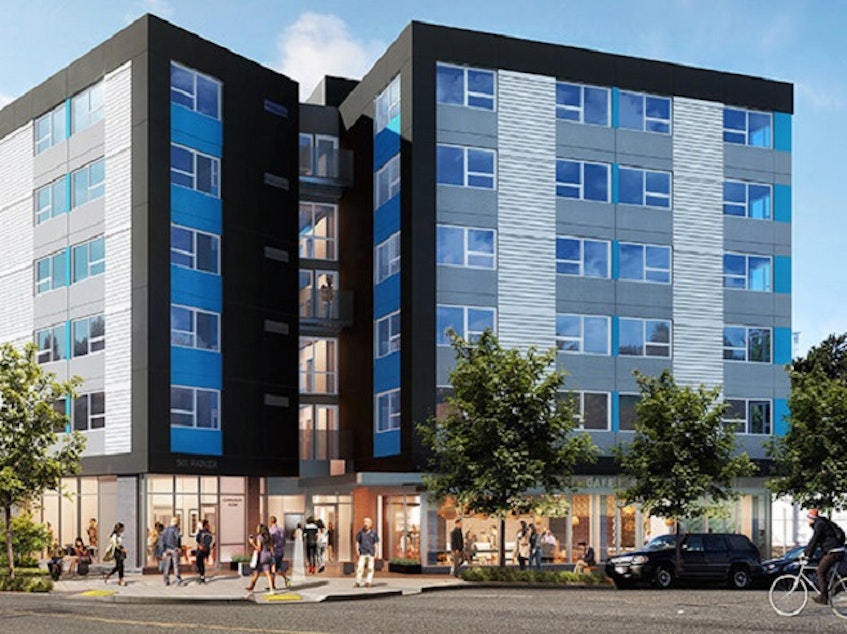Seattle to tap sales tax for affordable housing

For the State of Washington, the sales tax is a fire hose of money.
For ages, cities have wanted to poke a siphon into that hose and get a teensy bit of what's flowing inside. During the last legislative session, cities finally got that wish.
Seattle mayor Jenny Durkan is happy about the new law.
"Instead of sending this money to Olympia, we can keep it right here and put it to work," she said.
There are two ways that money could work.
First, it could build over 700 new apartments. The city builds $350,000 apartments for the bargain basement price for around $65,000 each — by leveraging other sources of funding. In some cases, other sources contribute $5 for every $1 spent by the city.
Second, the money could defray the cost of operating and maintaining the affordable housing the city’s already built.
Because it turns out, after the ribbon cutting ceremonies are over, apartment buildings still cost the city money $12,000 a year in operations and maintenance and $5,000 a year in supportive services such as counseling. Those services are especially important for the Seattleites living on the street.
Durkan hasn't said yet how the money will be divided among those two pots.
So, how does $50 million compare with other major recent investments in housing?
Microsoft gave 10 times that amount last year to create affordable housing in the region. But Microsoft's money will focus on workforce housing. That's housing for people on modest incomes, but who probably aren't homeless yet.
By contrast, Seattle aims to get people off the streets.
This new money is on top of the city's annual investments in affordable housing — drawn from the housing levy, the city's new Mandatory Housing Affordability program and a few other sources.
Last year, these sources added up to $75 million in investments. The year before, they added up to $100 million. The number changes annually, depending on the economy.
The new $50 million from the state is added on top of those annual funds we're accustomed to seeing announcements about every December. But windfalls like this one can only be expected once in every six blue moons.
That's because the $50 million itself is borrowed against 20 years of future taxes. A spokesperson for the mayor said the city is asking for the money up front, because the housing crisis is happening now.




